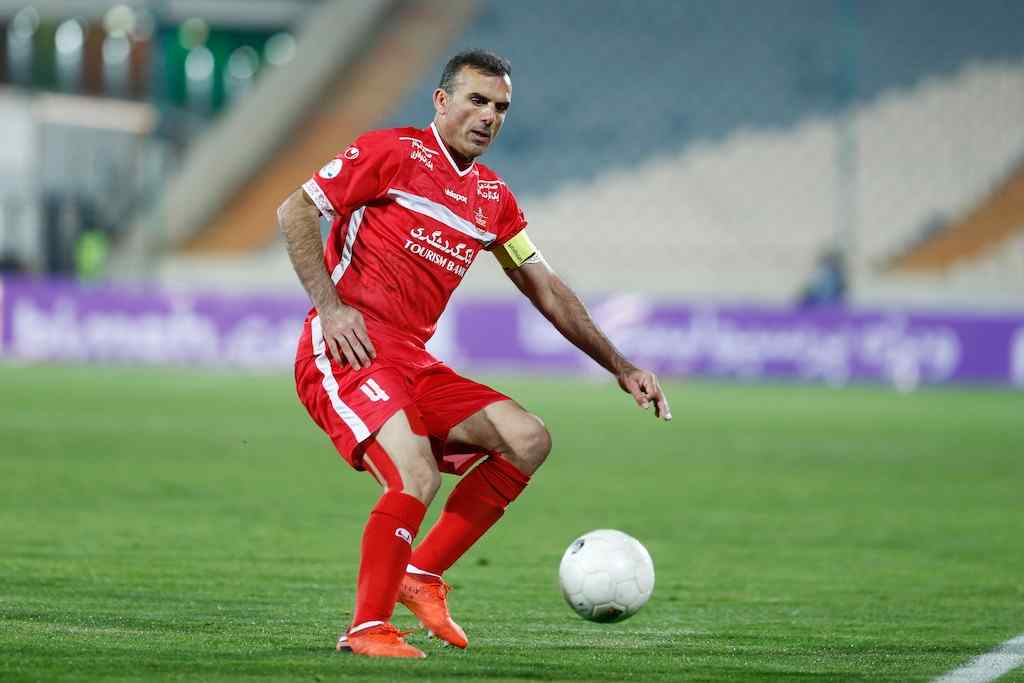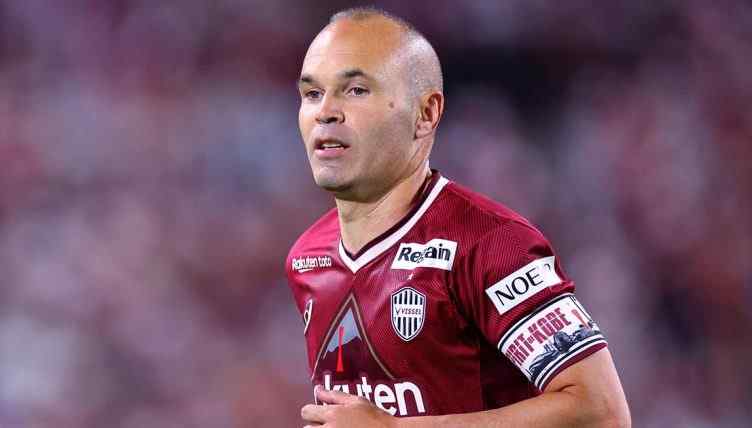
If you love soccer, then you’re probably familiar with some of the sport’s biggest stars. From Lionel Messi to Cristiano Ronaldo and beyond, these players have made history on the pitch and in our hearts. But what happens when their careers come to an end? Have you ever wondered at what age professional soccer players typically retire?
In this article, we uncover the retirement trends of professional soccer players so that you can better understand how long they tend to stay active in the sport. So whether your favorite player is still playing or already retired, join us as
The average retirement age for professional soccer players is around 35 years old. However, this varies depending on the player’s career and individual circumstances. Some players can continue playing until their late thirties or even early forties due to their physical fitness and dedication to the sport. In contrast, others may retire earlier if they feel they have nothing left to give.
What Is The Average Retirement Age Of Soccer Players?

The average retirement age for soccer players is a topic that has been debated and studied for many years. While there is no one-size-fits-all answer to this question, there are some general trends and factors that can help us understand when most soccer players hang up their boots.
First and foremost, it’s important to note that the average retirement age for soccer players varies significantly based on the level of competition they play at.
Professional players who compete at the highest levels of the sport tend to retire earlier than those who play at lower levels or in less competitive leagues. This is often due to the physical demands of the sport, as well as the fact that top-level players are often under more pressure to perform at their best.
In general, however, the average retirement age for soccer players is around 35 years old. This is because soccer is a physically demanding sport that requires a high level of endurance, speed, and agility.
As players get older, it becomes more difficult for them to maintain these physical attributes, which can lead to a decline in their performance on the pitch.
There are, of course, exceptions to this rule. Some soccer players are able to prolong their careers well into their late 30s and even early 40s, thanks to their exceptional physical condition and dedication to their craft. Others may choose to retire earlier due to injuries or personal circumstances.
Ultimately, the average retirement age for soccer players is a complex and multifaceted issue that depends on various factors, including the level of competition, physical demands of the sport, and individual player circumstances.
While 35 years old is often cited as the average retirement age, it is by no means a hard and fast rule, and many players retire before or after this age.
What Age Do Female Soccer Players Retire?

When it comes to female soccer players, the question of retirement age is an interesting one. While there is no set age at which all female soccer players retire, there are certainly trends that emerge.
Some female players retire in their early 20s, while others continue to play well into their 30s and even 40s. The age at which a female soccer player retires largely depends on various factors, including their physical and mental health, commitment to the game, and financial situation.
One factor that can impact a female soccer player’s retirement age is their physical health. For example, players who have suffered significant injuries may choose to retire earlier than those who have managed to avoid major injuries.
Similarly, players who are experiencing chronic pain or other physical issues may decide that it’s time to hang up their boots and pursue other opportunities.
Another factor influencing female soccer players’ retirement age is their mental health. Playing professional soccer can be an incredibly demanding and stressful experience, and some players may decide to retire earlier in order to preserve their mental well-being.
For others, the game’s mental demands may be a source of motivation and drive, leading them to continue playing for longer periods.
Financial considerations can also affect a female soccer player’s retirement age. For many players, the income they earn from playing soccer is their primary source of income.
If they can continue playing at a high level and earning a good salary, they may continue playing for more extended periods. However, if their income starts to decline or they cannot secure a new contract, they may decide to retire earlier to pursue other opportunities.
Why Do Soccer Players Retire So Early?

Soccer players tend to retire at a relatively young age compared to athletes in other sports. There are several reasons why this is the case.
First and foremost, the physical demands of soccer are incredibly high. The constant running and tackling takes a toll on the body, and as players get older, it becomes increasingly difficult for them to maintain their physical fitness.
This can lead to injuries and a decline in performance, making it difficult for them to continue playing at a high level.
Another reason why soccer players retire early is due to the intense mental and emotional demands of the sport.
The pressure to perform at a high level and the constant pressure to win can take a toll on a player’s mental and emotional well-being. Additionally, the constant traveling and time spent away from home can be difficult for players and their families, leading to a desire to retire and spend more time at home.
Finally, the financial incentives for retiring early are often too great to ignore. For example, soccer players often have short careers and may not have the opportunity to earn as much money as players in other sports who have longer careers. As a result, they may decide to retire early and take advantage of their earning potential while they still can.
What Do Footballers Do After Retirement?

Retiring from professional football can be a difficult transition for many players, as it marks the end of their playing career and often signifies the end of their identity as a professional athlete.
However, there are many paths that former footballers can take after hanging up their boots. Some may choose to stay involved in the game by taking on coaching or managerial roles, while others may decide to pursue entirely different careers.
One common route for retired footballers is to move into media or broadcasting, using their knowledge and experience of the game to provide analysis and commentary for television or radio.
Many former players also choose to go into business, using their fame and connections to launch successful ventures. Some may even return to education, either to complete their studies or to gain additional qualifications in a different field.
Retired footballers may also choose to become involved in charity work, using their platform and influence to raise awareness and funds for important causes. Many former players also opt to become involved in the footballing community by working with youth academies or coaching at the grassroots level.
Ultimately, a footballer’s path after retirement will depend on their personal interests and goals. Some may choose to stay involved in the game in some capacity, while others may look to start a new chapter in their lives entirely.
Regardless of their chosen path, former footballers need to have a support system in place to help them navigate this transition and find success in their next chapter.
Do Footballers Get Paid When They Retire?

As professional soccer players reach the latter stages of their careers, they may begin to wonder about their financial futures. After all, footballers don’t play forever, and it’s natural to wonder what happens to their income when they retire.
So, do footballers get paid when they retire? Unfortunately, the answer is somewhat complicated. In general, most professional footballers do not receive a steady stream of income once they hang up their boots.
Some players may have lucrative endorsement deals or other business ventures that can provide a financial cushion after retirement. Still, for the majority of players, their income will dry up when they retire.
This is especially true for players who retire at a relatively young age and may have yet to have the opportunity to build up significant savings or investments.
However, there are some exceptions to this rule. For example, some footballers may be entitled to a pension or other retirement benefits through their club or league.
These benefits can vary widely depending on the specifics of the player’s contract and the policies of the club or league. For example, some clubs may offer a pension plan to their players, while others may provide a lump sum payment or other forms of financial assistance upon retirement.
In addition, some professional footballers may be eligible for disability benefits if they are forced to retire due to injury. These benefits provide a financial safety net for players who can no longer compete at the highest level due to injury.
It’s also worth noting that many professional footballers retire relatively young, often in their mid-30s. This means that they have many years ahead of them in which they will need to find other sources of income. Some players may choose to pursue coaching or other roles within the football industry, while others may venture into different fields entirely.
Who Is The Oldest Soccer Player Still Playing?

The oldest soccer player still playing is currently Essam El-Hadary, a former Egyptian national team goalkeeper who currently plays for the Egyptian Premier League club Ismaily SC. El-Hadary, born on January 15, 1973, is currently 49 years old and has played professional soccer for over three decades.
He began his career with the Egyptian club Al Ahly in 1993 and has since played for several clubs in Egypt, Saudi Arabia, and Sudan. El-Hadary has also had a successful career with the Egyptian national team, appearing in four AFCON tournaments and earning over 150 caps for his country.
Despite his advanced age, El-Hadary has shown no signs of slowing down and continues to perform at a high level.
In fact, he was named the Egyptian Premier League’s best goalkeeper in both 2015 and 2016, and he was a vital member of the Ismaily SC team that won the Egyptian Cup in 2017. El-Hadary has also set several records for his age, including becoming the oldest player to play in an AFCON tournament and appearing in a World Cup qualifier.
It is not uncommon for soccer players to continue playing well into their 30s and even 40s, as the sport requires a high level of fitness and skill that can be maintained with proper training and conditioning.
However, it is rare for a player to reach the age of 49 and still be competing at the highest level. El-Hadary’s longevity and success are a testament to his dedication and hard work, and he continues to inspire players of all ages with his commitment to the game.
Physical Challenges That Contribute To Early Retirement

Physical challenges can significantly impact the decision to retire early in the world of soccer. Fatigue is a common issue that can affect performance on the field.
As players age, their bodies may not be able to recover as quickly from the physical demands of the game, leading to a decrease in performance and an increased risk of injury.
Injury risk is another factor that can contribute to early retirement in soccer. The nature of the sport puts players at risk for various injuries, from strains and sprains to more severe injuries, such as fractures and ligament tears.
These injuries can not only cause players to miss games and practices, but they can also have long-term effects on a player’s career. For example, a severe injury may require surgery and a lengthy rehabilitation process, which can take a player out of action for an extended period.
This can be especially damaging for older players, as they may not have the same physical abilities or recovery time as younger players.
Age-related declines in speed and agility are also physical challenges that can contribute to early retirement in soccer.
As players get older, it becomes more difficult to maintain their physical fitness level, leading to a decrease in speed and agility. This can make it more difficult for players to keep up with the game’s pace and make them more prone to injuries.
At Which Age Do Goalkeepers Usually Retire?

When it comes to soccer, goalkeepers are often seen as the last line of defense. They are responsible for protecting their team’s net and making crucial saves to prevent the other team from scoring.
But like all soccer players, goalkeepers eventually reach a point where they must retire from the sport. So, what age do goalkeepers typically retire?
The answer to this question can vary greatly.
Some goalkeepers may retire in their early 30s, while others may continue playing into their 40s and even 50s. It all depends on various factors, including physical ability, mental endurance, and personal preferences.
One of the main factors that can impact a goalkeeper’s retirement age is their physical ability. As players age, it becomes more difficult for them to maintain the same level of fitness and agility as they had in their youth.
Goalkeepers, in particular, rely heavily on their reflexes and quick movements to make saves, so it’s common for them to start slowing down as they get older. Another factor influencing goalkeepers’ retirement age is their mental endurance.
The demands of being a goalkeeper can be mentally exhausting, as they are constantly under pressure to perform at a high level. As a result, some goalkeepers may find that they can no longer handle the mental strain of the sport as they get older, leading them to retire earlier.
Finally, personal preferences can also play a role in a goalkeeper’s retirement age. Some goalkeepers may simply decide that they have had enough of the sport and want to move on to other pursuits. Others may wish to continue playing as long as they can, either for the love of the game or to set records.



